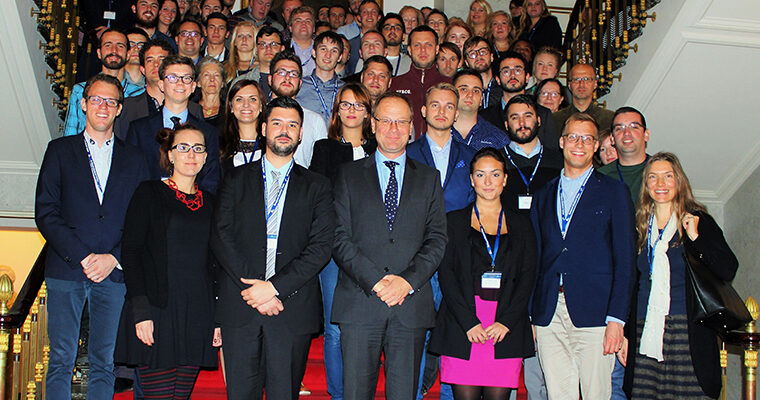
Tibor Navracsics encourages students and higher education to lead the way in promoting solidarity
BRUSSELS – The European Students’ Union welcomes Mr. Tibor Navracsics’ support for quality education and student-centered learning. In light of Europe’s refugee crisis, rapid technological developments and rising xenophobia and extremism, students across Europe stress the need for student-centered, quality education for all. It is now visible that education has been at the roots of many issues people are facing today and that higher education should empower citizens to shape the future they want to live in. This cannot be done without having inclusive and accessible education for students from diverse, backgrounds, including refugees. Free and open education is an investment in the future, but even more so in the future of human rights and democracy.
These are some of the conclusions of the 30th European Students’ Convention – which gathered in Brussels over 100 student representatives from over 38 European countries between 28th and 30th September. Participants discussed together with EU policy-makers, NGOs and higher education professionals the effects of European higher education reforms on learning and teaching and how to apply the student-centered learning approach.
A shift in pedagogical approaches is needed
“Education can help us forge a path towards a fulfilling life – both in a professional and in a social sense. It has a crucial role in fostering intercultural dialogue and in preventing exclusion and radicalization. But in order to unlock its full potential, we need a shift in pedagogical approaches: Education needs to become more inclusive, to focus more on individual needs and to promote student-centered approaches to learning. (…) I know that the European Students’ Union is eager to play a big role helping refugees and students in conflict areas. And I truly appreciate your commitment.“ says Mr. Tibor Navracsics, European Commissioner for Education, Culture, Youth and Sport and one of the key speakers of the Convention.
A general agreement was that the refugee crisis and the development of e-learning are triggering more changes in the Bologna Process than the structural reforms. The use of ICT in higher education and e-learning was mostly seen as a complement to traditional educational paths and not as a substitute to teacher-student interaction.
During the three day event, ESU projects such as PASCL (Peer Assessment of Student-Centred Learning), IDEAS (Identifying Effective Approaches to Enhancing the Social Dimension of Higher Education) and ESPRIT (Enhancing the Social Characteristics and Public Responsibility of Israeli Teaching through a HEI-Student Alliance) were presented through workshops and discussions.
“Our 30th European Students’ Convention built a bridge between students and European policy-makers and we were extremely happy with the results and participation. Everyone agreed that students should be equal partners in the education process. We are grateful to the European Parliament, the European Economic and Social Committee and the Royal Flemish Academy of Belgium for their support to this event,” says Fernando Galan, Chairperson of European Students’ Union.
